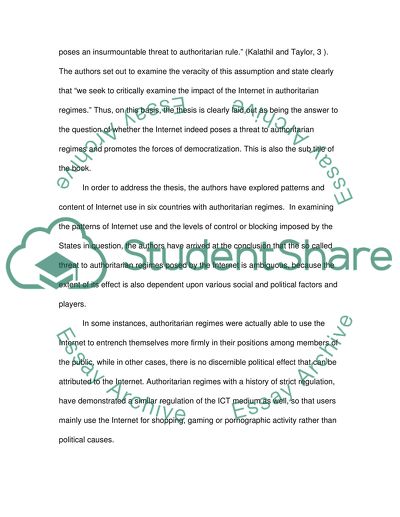Cite this document
(“BOOK REVIEW on Open Networks, Closed Regimes by Shanthi Kalathil and Essay”, n.d.)
Retrieved from https://studentshare.org/miscellaneous/1541536-book-review-on-open-networks-closed-regimes-by-shanthi-kalathil-and-taylor-c-boas
Retrieved from https://studentshare.org/miscellaneous/1541536-book-review-on-open-networks-closed-regimes-by-shanthi-kalathil-and-taylor-c-boas
(BOOK REVIEW on Open Networks, Closed Regimes by Shanthi Kalathil and Essay)
https://studentshare.org/miscellaneous/1541536-book-review-on-open-networks-closed-regimes-by-shanthi-kalathil-and-taylor-c-boas.
https://studentshare.org/miscellaneous/1541536-book-review-on-open-networks-closed-regimes-by-shanthi-kalathil-and-taylor-c-boas.
“BOOK REVIEW on Open Networks, Closed Regimes by Shanthi Kalathil and Essay”, n.d. https://studentshare.org/miscellaneous/1541536-book-review-on-open-networks-closed-regimes-by-shanthi-kalathil-and-taylor-c-boas.


